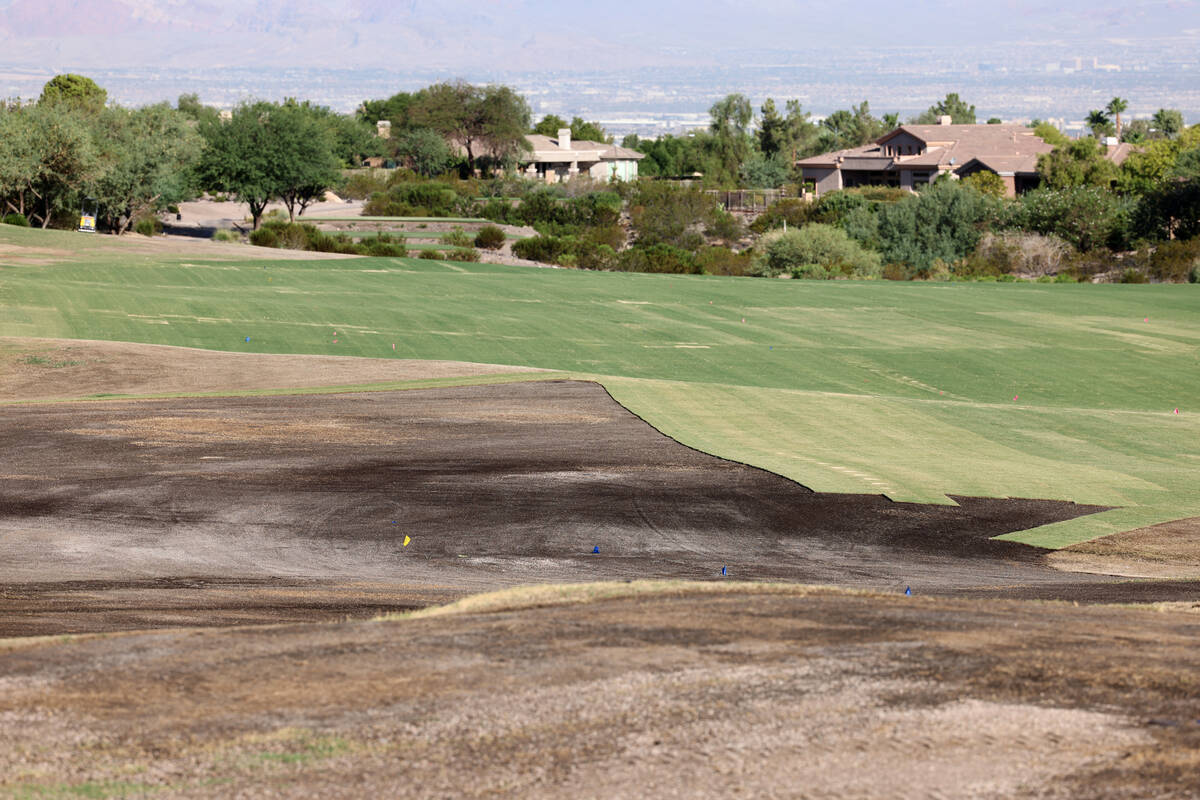Biggest water users could face restrictions, SNWA says

A proposal that would give Southern Nevada water managers the ability to limit residential water use would only affect the top 20 percent of users in the Las Vegas Valley, representatives from the Southern Nevada Water Authority told state lawmakers Monday.
Assembly Bill 220 would give the Southern Nevada Water Authority the ability to limit residential water use in single-family homes to about 163,000 gallons annually during times when the federal government has declared a water shortage along the drought-stricken Colorado River, which supplies 90 percent of Southern Nevada’s water.
The bill would also set up a program to eventually convert thousands of homes with septic systems into the region’s municipal sewer system and ensure that more water can be recycled and sent back to Lake Mead rather than being lost into the ground.
If approved, the measure would mark another significant step in water conservation efforts in the most populous county in the country’s driest state, where aggressive water-saving measures such as a ban on decorative turf, excessive use fees for the biggest users and limits on the size of new pools have been enacted in recent years.
Southern Nevada Water Authority public service director Andy Bellanger said that the top 20 percent of users use more than 163,000 gallons — about one-half acre-foot — annually, so the other 80 percent of customers in the valley would not see any impact from the bill.
“But it does address these top 20 percent of customers who are using more water and have not made the changes necessary to protect our community’s water supplies,” Bellanger told the Assembly Natural Resources Committee. Bellanger said there are no plans to impose the restrictions. But given that conditions along the Colorado River are expected to decline in the future, the authority wants to have the ability in place in case it is needed before the Nevada Legislature meets again in 2025.
Under the bill, the water authority could impose such restrictions if the federal government declares a water shortage for the Colorado River. The river has been under a federally-declared water shortage since 2022 due to Lake Mead’s continued decline, with the reservoir currently sitting at 1,047 feet in elevation.
Nevada has seen its small, 300,000 acre-foot annual share of the Colorado River reduced by 8 percent over the past two years under recent shortage declarations. Nevada and the six other states that rely upon the Colorado River’s waters are currently negotiating proposals to reduce uses along the river by as much as 25 percent going forward.
Stark future
Colby Pellegrino, the water authority’s deputy general manager of resources, noted the stark future of the river that supplies water to 40 million Americans.
Despite ample amounts of snow in the mountains that feed the Colorado River this winter, the river’s largest reservoir — Lake Mead — is still expected to shrink in the coming years. The Bureau of Reclamation’s most probable projections show Lake Mead falling to as low as 1,016 feet within the next two years. In the bureau’s worst-case scenario, the reservoir could fall below 1,000 feet by the summer of 2024, she noted.
“We’ve spent a tremendous amount of time and energy and resources stretching our small supply of Colorado River water. But we need to do more,” Pellegrino said.
Several local governments in Southern Nevada, including Clark County, Las Vegas, North Las Vegas and Henderson, as well as several environmental groups, testified in support of the bill.
The majority of those who spoke in opposition criticized the septic tank conversion aspect of the proposed legislation, raising concerns about the costs of conversions to homeowners forced to link to municipal sewer systems.
The bill sets a deadline of 2054 for those conversions to take place, and it would set up a program in which at least half of the cost of converting septic systems to the municipal sewer system would be covered by the local governments.
The committee did not take any action on the bill.
Contact Colton Lochhead at clochhead@reviewjournal.com. Follow @ColtonLochhead on Twitter.